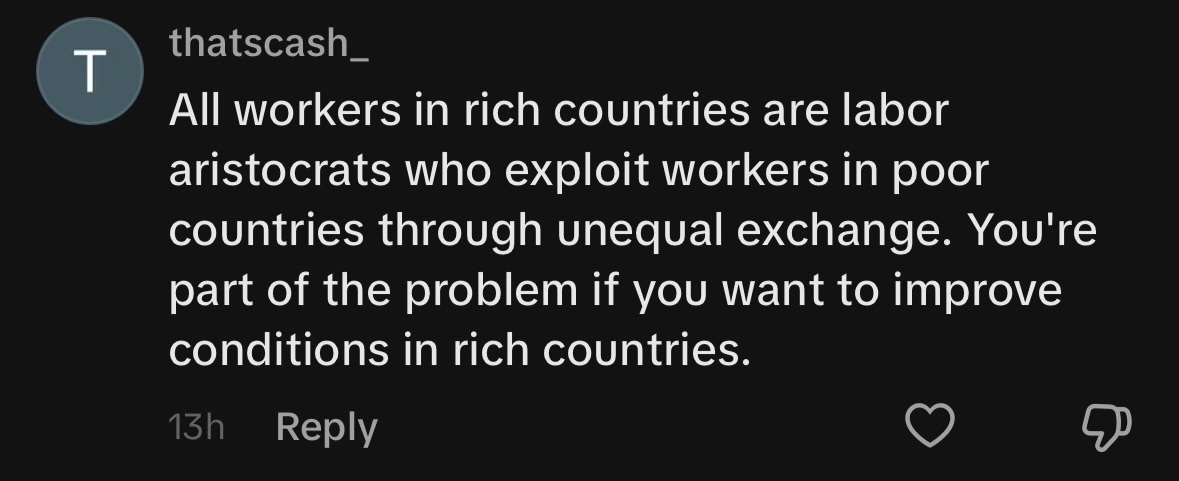this post was submitted on 29 Jun 2024
104 points (98.1% liked)
marxism
3865 readers
1 users here now
For the study of Marxism, and all the tendencies that fall beneath it.
Read Lenin.
Resources below are from r/communism101. Post suggestions for better resources and we'll update them.
Study Guides
- Basic Marxism-Leninism Study Plan
- Debunking Anti-Communism Masterpost
- Beginner's Guide to Marxism (marxists.org)
- A Reading Guide (marx2mao.com) (mirror)
- Topical Study Guide (marxistleninist.wordpress.com)
Explanations
- Kapitalism 101 on political economy
- Marxist Philosophy understanding DiaMat
- Reading Marx's Capital with David Harvey
Libraries
- Marxists.org largest Marxist library
- Red Stars Publishers Library specialized on Marxist-Leninist literature. Book titles are links to free PDF copies
- Marx2Mao.com another popular library (mirror)
- BannedThought.net collection of revolutionary publications
- The Collected Works of Marx and Engels torrentable file of all known writings of Marx and Engels
- The Prolewiki library a collection of revolutionary publications
- Comrades Library has a small but growing collection of rare sovietology books
Bookstores
Book PDFs
founded 4 years ago
MODERATORS
you are viewing a single comment's thread
view the rest of the comments
view the rest of the comments

This is interesting but I'm extremely skeptical. If all workers are paid more than the value they produce, why do business hire anyone? And if all business in the core are inherently unprofitable, what is the mechanism that keeps them afloat?
Cope argues superprofits from imperialism
This could make some sense in aggregate, but doesn't make any sense on a micro level. How does, say, a fast food franchise receive the super-profits? And why is the restaurant hiring people that lose them money? If it's motivated by a need for sales, and the sales are "worth it" economically, meaning enough to cover labor and other costs plus profit, isn't that just describing surplus value?
If you're rly interested I'd suggest reading Cope's book, as he lays out the figures and even the movement of the money better than I can with more citations than I can. As you suggest, it's about the aggregate motion of capital. Take your restaurant example:
The restaurant isn't losing money so long as imperialism persists, because they're selling e.g. burgers for inflated prices. The burgers can be sold for inflated prices because e.g. construction worker is paid inflated wages. Construction company can afford to pay inflated wages because it's buying artificially cheap materials and because it's being paid inflated fees by e.g. a bakery. Bakery can pay the inflated fees because it's buying artificially cheap materials and because it's selling e.g. cakes at inflated prices. The cakes can be sold for inflated prices because e.g. tech employees are paid inflated wages. Tech companies can afford to pay employees inflated wages because e.g. government buys new windows hardware at inflated prices. Government can afford those inflated prices because a. the global south governments pay them yearly debt repayments or b. because they tax superprofit made in the global south.
Ok, that's starting to make sense. Still not sure about it, but I feel like I'm understanding it at least a little better. Definitely interested to read the book now, thanks for all the info